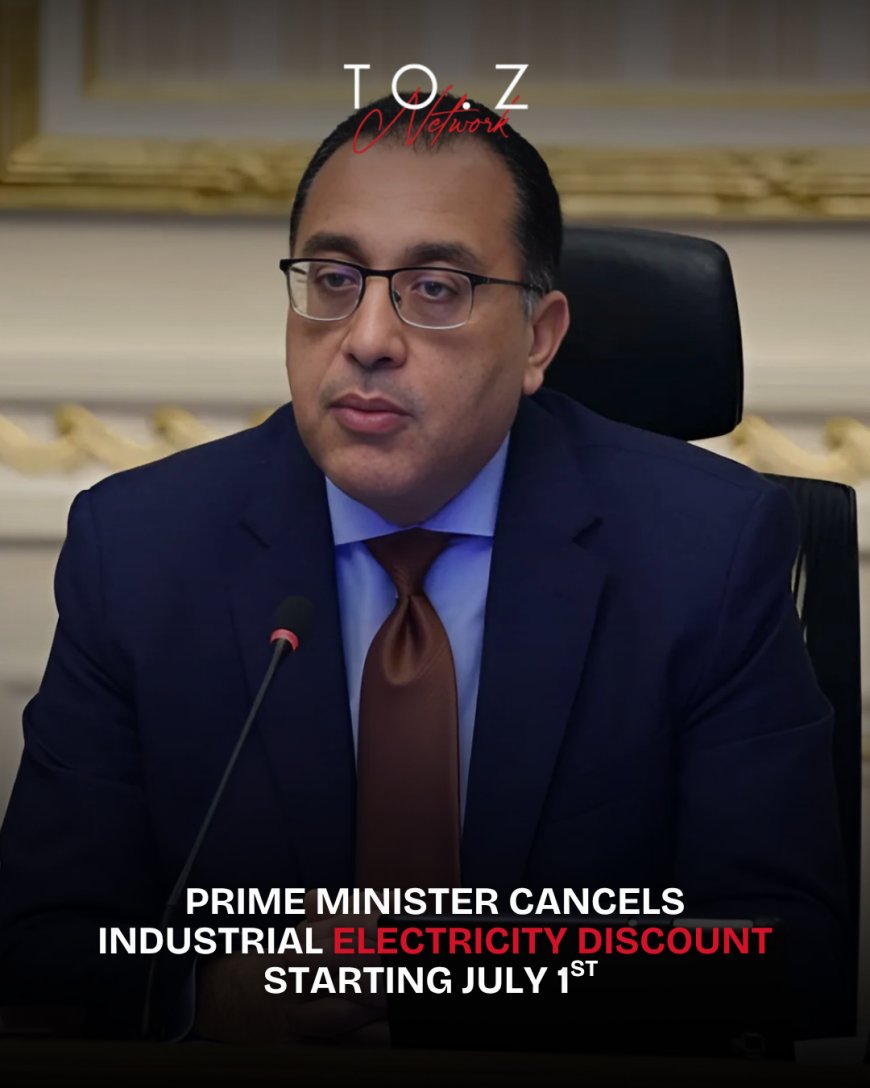Egypt to Revoke Industrial Electricity Discount as of July 2025
Meta Summary & Description (merged): Egypt has announced the cancellation of the industrial electricity discount as of July 2025, ending a five-year subsidy introduced to support factories during economic hardship. The decision reflects a broader fiscal reform strategy and will impact energy costs across industrial sectors.

Policy Shift: End of a Five-Year Energy Subsidy
In a significant move toward economic reform, Egyptian Prime Minister Mostafa Madbouly has announced the cancellation of the industrial electricity discount, effective 1 July 2025. The subsidy had been in place since 2020 under Decree No. 781, granting a reduction of 10 piastres per kilowatt-hour for industrial consumers using ultra-high, high, and medium-voltage connections.
Background: Supporting Industry During Economic Strain
The 2020 electricity discount was introduced at a time of economic difficulty, aiming to boost industrial competitiveness and drive growth. It applied across peak and off-peak hours, helping factories and large-scale manufacturers manage their operational costs and maintain productivity.
Reasons Behind the Cancellation
The decision to revoke the subsidy reflects a broader government strategy focused on fiscal consolidation and public spending reform. Amid growing financial pressures and in alignment with legislative frameworks such as the Public Finance Law and the Electricity Law, the move has been approved by the Egyptian Cabinet.
Impact on Industrial Sectors
The revocation is expected to affect a wide range of industrial sectors that have benefited from reduced energy bills for the past five years. With electricity costs reverting to standard rates, many businesses will be compelled to reassess their cost structures, production models, and pricing strategies to adapt to the increased operational expenses.
Uncertainty Around Alternative Support
As of now, no official announcements have been made regarding alternative support mechanisms for impacted industries. However, the government has signaled a long-term commitment to more targeted and sustainable subsidy policies, shaped in response to global energy market fluctuations and rising local production costs.
Looking Ahead
Industrial stakeholders and business leaders are closely monitoring the situation, awaiting potential mitigating measures from the government before the July 2025 deadline. As the country transitions away from broad-based energy subsidies, the move marks a significant recalibration in Egypt’s economic and industrial strategy.









